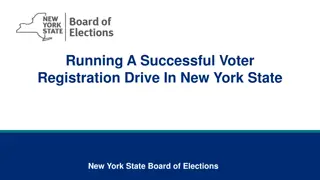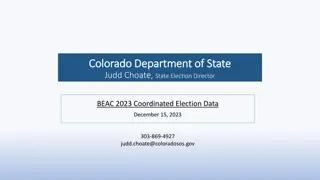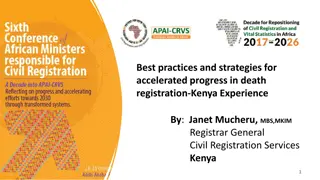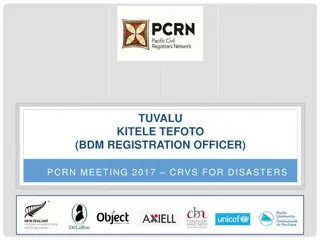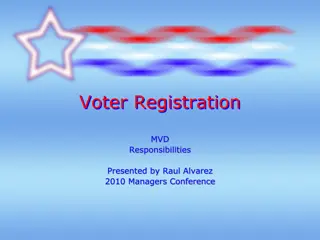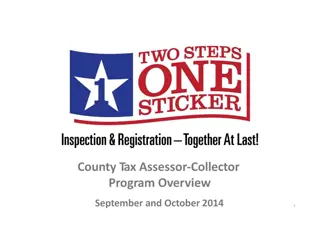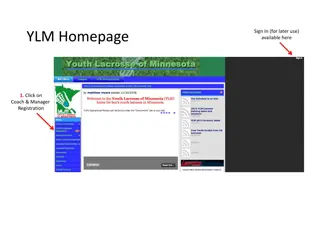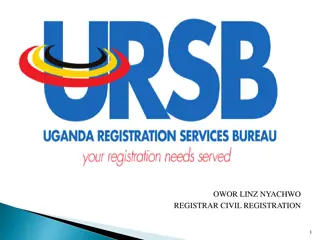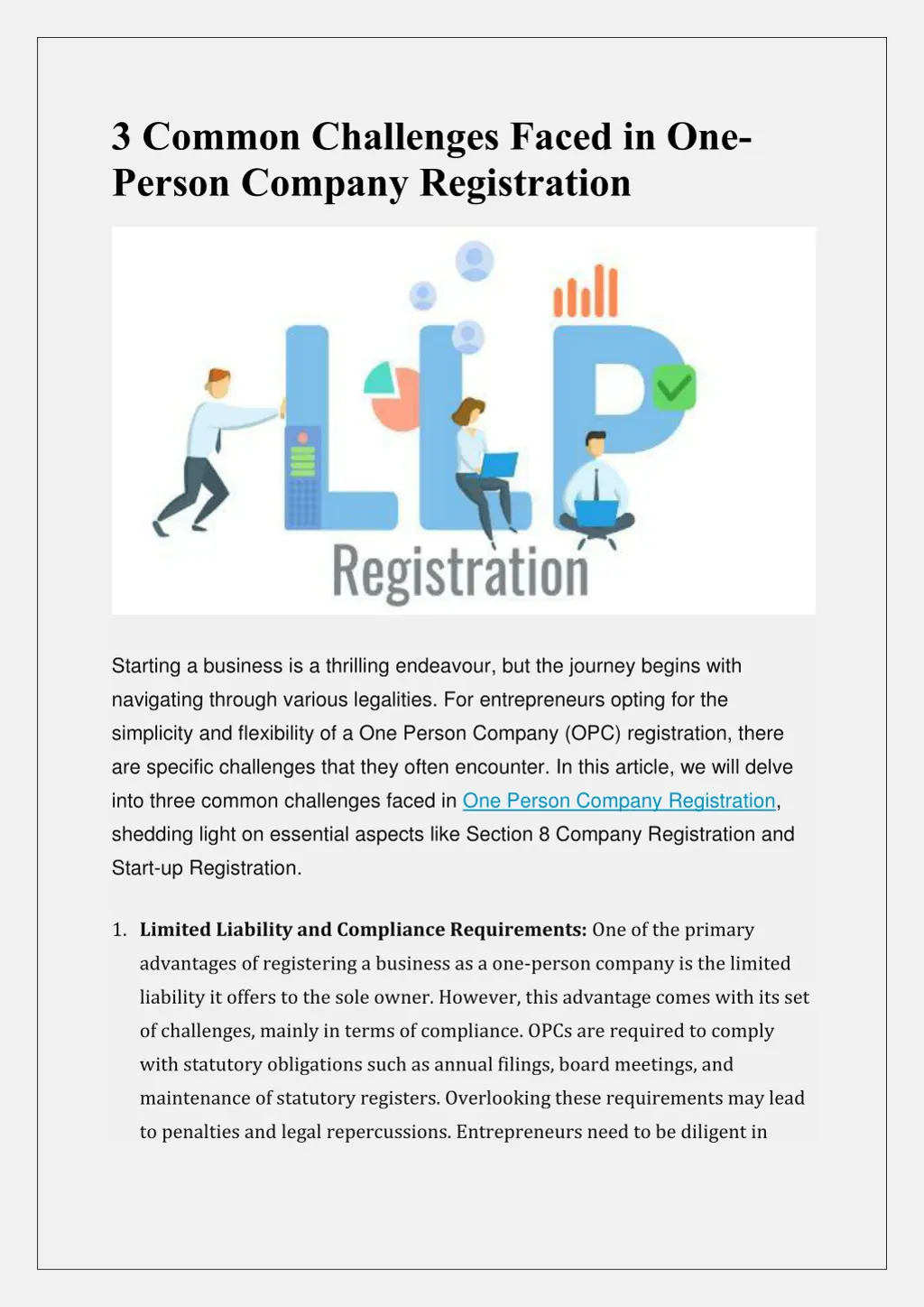
3 Common Challenges Faced in One-Person Company Registration
Explore hassle-free One Person Company (OPC) registration in India with Registrationwala. Our experts simplify the process, ensuring a seamless experience. Start your solo entrepreneurial journey today!
Download Presentation

Please find below an Image/Link to download the presentation.
The content on the website is provided AS IS for your information and personal use only. It may not be sold, licensed, or shared on other websites without obtaining consent from the author. Download presentation by click this link. If you encounter any issues during the download, it is possible that the publisher has removed the file from their server.
E N D
Presentation Transcript
3 Common Challenges Faced in One- Person CompanyRegistration Starting a business is a thrilling endeavour, but the journey begins with navigating through various legalities. For entrepreneurs opting for the simplicity and flexibility of a One Person Company (OPC) registration, there are specific challenges that they often encounter. In this article, we will delve into three common challenges faced in One Person Company Registration, shedding light on essential aspects like Section 8 Company Registration and Start-up Registration. 1.Limited Liability and Compliance Requirements: One of the primary advantages of registering a business as a one-person company is the limited liability it offers to the sole owner. However, this advantage comes with its set of challenges, mainly in terms of compliance. OPCs are required to comply with statutory obligations such as annual filings, board meetings, and maintenance of statutory registers. Overlooking these requirements may lead to penalties and legal repercussions. Entrepreneurs need to be diligent in
adhering to the compliance framework to ensure the continued benefit of limited liability. 2.Transition to Section 8 Company Registration: As a business grows and evolves, entrepreneurs may contemplate transitioning from a one-person company to a Section 8 Company. A Section 8 Company, also known as a not- for-profit organization, is formed to promote charitable objectives. This transition involves a shift in the company s structure and objectives, necessitating careful consideration of legal procedures. Entrepreneurs must be aware of the specific requirements and processes involved in transitioning from a one-person company to a Section 8 Company. This involves obtaining necessary approvals, altering the company s memorandum and articles of association, and complying with the legal obligations imposed on Section 8 companies. 3.Navigating Start-up Registration Challenges: For many entrepreneurs, a one-person company serves as an ideal structure for start-ups due to its simplicity and reduced compliance burden. However, obtaining Startup Registration can be a complex process. To avail of the benefits associated with start-up recognition, entrepreneurs must meet certain criteria, including innovation, scalability, and the potential for job creation. Ensuring that the business aligns with these criteria and completing the necessary documentation is crucial for obtaining Start-up Registration. Additionally, maintaining compliance with the start-up ecosystem s evolving regulations is essential to continue enjoying the associated benefits. Conclusion: While the journey of personal company Registration has its share of challenges, overcoming these obstacles is crucial for the success and sustainability of the business. Entrepreneurs need to stay well-informed about compliance requirements, understand the process of transitioning to a Section 8 Company if needed, and navigate the complexities of obtaining and maintaining Start-up Registration. By addressing these challenges head-on, entrepreneurs can lay a solid foundation for their business and ensure a smoother path toward growth and success.





